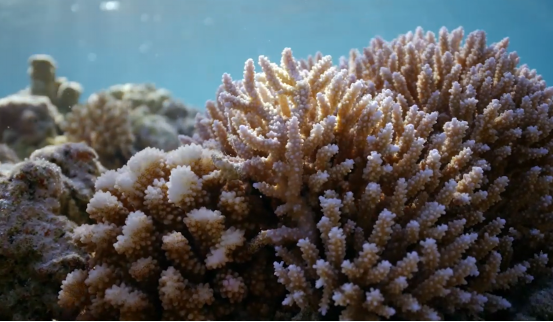
The International Coral Reef Initiative (ICRI) announced on Wednesday that harmful coral bleaching (白化) now affects 84% of ocean reefs worldwide, marking the worst event of its kind in recorded history.
This crisis, caused by rising ocean temperatures since 2023, has become the fourth global bleaching event since 1998. Data from the ICRI — an organization involving over 100 governments and groups — shows it has exceeded the 2014-2017 event that damaged two-thirds of reefs. Experts remain uncertain when this disaster will end.
“The heat stress causing bleaching may never fall below the critical level that starts global events,” warned Mark Eakin, chief scientist at the International Coral Reef Society. He emphasized this crisis is transforming Earth’s ecosystems and threatening the ocean’s ability to support marine life and human survival.
2023 was the hottest year on record, with oceans absorbing most of this excess heat. The average annual sea surface temperature in non-polar regions reached a record 20.87°C (69.57°F) — conditions deadly to coral reefs.
These “rainforests of the sea” — a nickname reflecting their rich biodiversity — host about 25% of marine species. They play vital roles in fisheries, tourism, and coastal protection against storms and erosion.
Corals get their colors from algae living within them, which also provide food. When water stays warm too long, the algae release harmful substances, forcing corals to expel them. This leaves behind pale white skeletons and makes corals far more likely to die.
While active efforts continue to protect and rebuild coral populations, scientists stress the urgent need to cut greenhouse gases like carbon dioxide and methane (a powerful greenhouse gas). “True protection requires tackling climate change at its source — reducing fossil fuel emissions. Other measures are just temporary fixes,” Eakin stated.
Melanie McField, a leader in the Global Coral Reef Monitoring Network, added: “Public awareness is crucial. Doing nothing means signing coral reefs’ death warrant.” Her team monitors reef conditions worldwide.
原创编写 版权所有 侵权必究! 每日更新 个性化阅读 英语飙升!
3. 3. What can we infer from Mark Eakin’s words?
A The heat stress will soon decrease.
B The crisis has little impact on humans.
C Temporary fixes can solve the problem.
D Climate change is a serious threat.
4. 4. What is the best title for the text?
A The Beauty of Coral Reefs.
B The Monitoring of Coral Reefs.
C The Crisis of Coral Bleaching.
D The Protection of Marine Life.

 更多优质学习内容
更多优质学习内容

